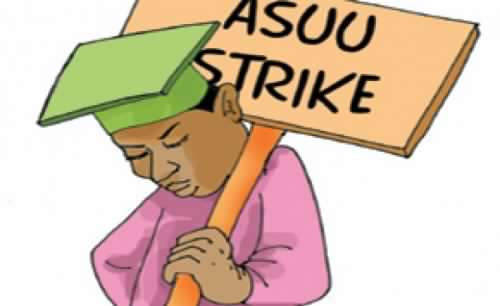
Since the beginning of this democratic dispensation in 1999, the Academic Staff Union of Universities, also known as ASUU, has gone on strike for a combined total of 1,404 days in that time period.
This figure indicates that university lecturers have used a three-year and ten-month boycott of classrooms to press their demands on the federal and state governments.
ASUU, an umbrella body of teaching staff at federal and state government-owned universities in Nigeria, has been on strike since February 14, 2022, in order to demand better working conditions and pay.
The demands of the striking lecturers include funding for public university revitalization, Earned Academic Allowances, University Transparency Accountability Solution (UTAS), and promotion arrears.
Similar Posts:
Prof. Emmanuel Osodeke, President of ASUU, criticised the federal government for the strike and its apathetic attitude toward tertiary education in an interview with the News Agency of Nigeria, NAN, in Abuja.
275 days in 2020
Statisense, a company that provides data consulting services, responded to the menace on its Twitter account on Tuesday by revealing that lecturers have utilised a total of 1,404 days to air their frustrations through strikes, with 275 days in 2020 being the longest stretch.
Statisense made a reference to Monogbe, B.O and Monogbe, T.G, the authors of “ASUU Strike and Nigerian Educational System: An Empirical Investigation of the Nigerian Tertiary Institution,” as it revealed the figures.
In 1999 and 2001, the ASUU strike lasted 90 days each, culminating in a 180-day strike, and it was another straight 180-day strike in 2003.
Lecturers boycotted classrooms for another 90 days in 2007. The next strike lasted 120 days in 2009 and 180 days in both 2010 and 2011.
Due to a strike, there were no lectures for 165 days in 2013, and another one occurred in 2018, lasting 94 days. The latest strike is still going on after 120 days.
This week, it was reported by Vanguard that the leadership of ASUU had turned down a crowdfunding platform that had been established to bring an end to the strike that is currently being staged by academics at public universities in the country.
The well-known philanthropist and proprietor of Human Rights Radio, Ahmed Isah, launched a platform for crowdsourcing donations with the intention of collecting funds for the lecturers’ union in the hopes of putting an end to the strike that has put academic activities in the country’s public universities in jeopardy.
Isah had invited ASUU President Osodeke to his station to inform them of his efforts to resolve the age-old crisis between ASUU and the federal government, but Osodeke flatly refused.

